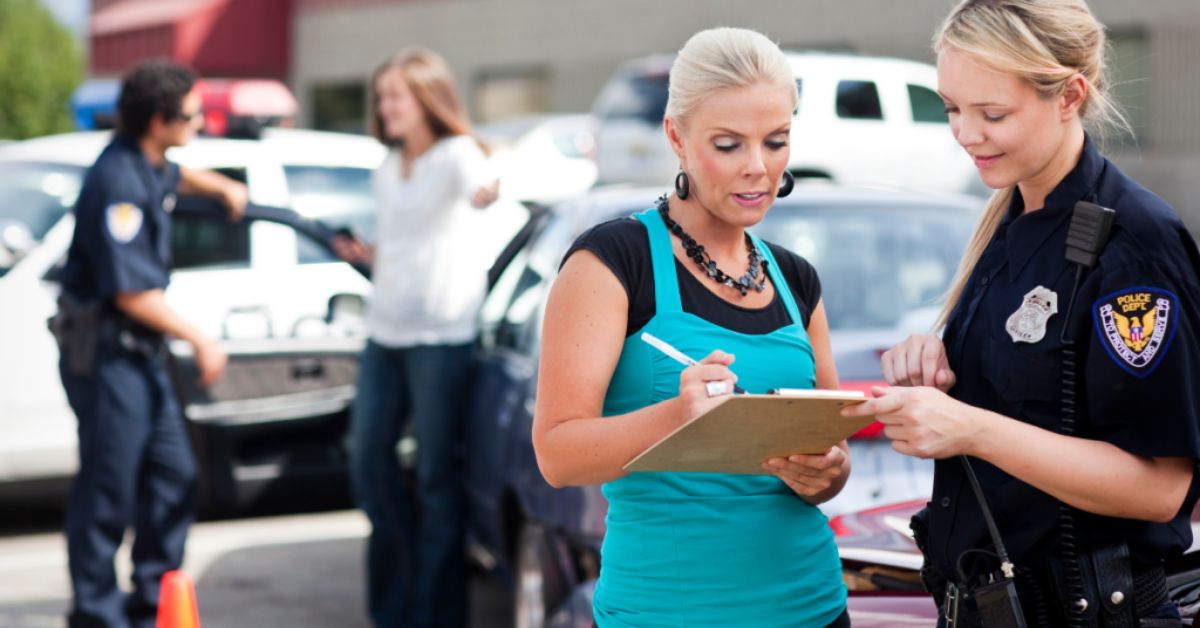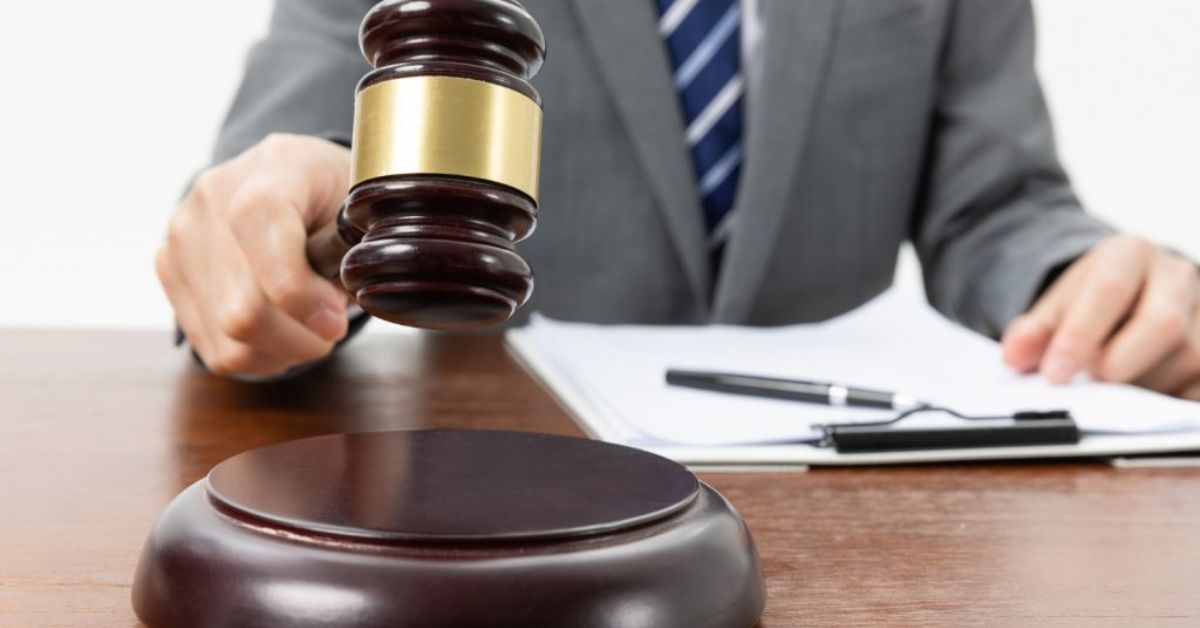LAW
Handling Family Law Cases Without a Lawyer: Here’s What You’re Vulnerable To

Family law cases are often filled with highly emotional and technical questions, including child custody, divorce, property division, and spousal support. Many choose to represent themselves in these cases, believing it will save them time and money in legal fees. While that’s possible, representing oneself in a family law case requires consideration of the possible risks and challenges you may encounter.
The courthouse is a formidable institution, and most people do not realize this. Family law cases involve direct legal procedures, documents, and deadlines, and an oversight may be too costly to overcome.
Individuals may experience delays, financial losses, or the worst possible outcome simply because of procedural errors without proper legal support. Making yourself appear powerful is one attractive fact about self-representation; however, it opens doorways to numerous vulnerabilities that could affect you and your family.
The best family law attorneys can make a huge difference in navigating the challenges involved. Experienced lawyers know the process, know how to strengthen the case, and can represent clients in negotiations.
Here is what you may be subjected to when you choose to deal with your family law case without legal help.
1. Lack of Knowledge
A family law attorney can help you understand all about your rights and obligations.
For example, you may end up giving away some really valuable assets in a settlement for divorce or get yourself into a lousy custody arrangement failing to satisfy your requirements.
A professional lawyer will interpret each case from a legal angle and ensure their clients know all possible options before deciding on a line of action.
2. Risk of Unfavorable Judgments
Wrong or poor judgments will take a long time to rectify. The case put before the court by a pro se litigant may not always be so clear or present enough evidence. That results in adverse judgments ranging from less visitation time to even lower child support.
A professional family attorney would make a case stronger by collecting appropriate evidence, making reasonable negotiations, and presenting strong arguments for the protection of your rights.
3. Challenges with Paperwork and Deadlines
Family law cases can include intricate paperwork, such as writing petitions and motions and even court filings. Courts have deadlines, and failure to meet a filing date or error on a form can delay the case or worse even cause it to be dismissed.
Family law attorneys can take care of all the paperwork that is usually involved and see to it that it is done precisely and filed in time to reduce the chances of administrative errors that might jeopardize your case.
4. Inability to Negotiate Effectively
The core principle of most family law cases, such as divorce, is negotiation because issues like asset division, alimony, and child custody are usually reached outside the court.
Self-represented litigants often lack negotiation skills or even fail to negotiate to receive a just outcome. Experienced family lawyers are knowledgeable negotiators who work on your interests while finding an outcome that will benefit both parties. By deciding to represent yourself, you stand a chance of agreeing to a poor deal based on limited negotiation or pressure.
Conclusion
Handling a family law case without legal help may seem like a way of saving money. However, this may expose you to serious risks, including missed deadlines and unfavourable judgments, as well as difficulties in negotiation.
Hiring the best family law attorney ensures that your rights are protected and that you are well-represented throughout the process.
LAW
Why Talking to Police Without a Lawyer Can Backfire

Talking to the police might seem like the right thing to do—especially if you haven’t done anything wrong. You may think that cooperating fully and answering their questions will clear things up faster. But here’s the truth: speaking to law enforcement without legal advice can go terribly wrong. Even innocent people end up facing serious consequences because they didn’t understand how their words could be used against them.
If you’re ever questioned by the police, your first instinct should be to protect yourself. That starts with knowing your rights and using them wisely. One of the smartest steps you can take is asking for legal representation for criminal defense cases before saying anything at all. A lawyer’s job is to protect your best interests, and they can help you avoid mistakes that could cost you your freedom or reputation.
Let’s explore why talking to police without a lawyer is often a big mistake.
You Might Say More Than You Should
When you’re nervous or stressed, it’s easy to talk too much. You may try to explain yourself or fill in details that seem harmless. But every word you say can be recorded, written down, and used as evidence—even if it’s misunderstood. Police are trained to pick up on inconsistencies. Even a small slip can raise suspicion or twist the story against you.
Police Don’t Have to Tell You Everything
One common misconception is that police will always be honest with you. In reality, they’re allowed to use certain tactics during interviews, including lying. They might say they have evidence when they don’t. Or they may claim that someone else already told them you’re guilty. These are tricks designed to get you to confess or give more information. Without a lawyer, you might fall for these tactics without even realizing it.
You Could Accidentally Incriminate Yourself
Even if you didn’t commit a crime, your words might suggest otherwise. You might unintentionally confirm details that connect you to a crime scene. Or you might make a statement that seems inconsistent with what others said. These can all be twisted to make you look guilty—even when you’re not. A lawyer can help you avoid saying anything that could be taken out of context.
You Give Up the Chance to Build a Strong Defense
By speaking too soon, you may reveal things that weaken your own defense. Once you’ve said something, it’s on record. Even if your lawyer later wants to argue something different, your earlier words may limit your options. A good defense starts with strategy. That means staying quiet until your lawyer helps you decide what to say, how to say it, or whether to speak at all.
Your Silence Can’t Be Used Against You
A lot of people worry that asking for a lawyer makes them look guilty. But that’s not how the law works. In fact, the Constitution gives you the right to remain silent. And choosing to use that right cannot legally be used as proof of guilt. It’s not only smart to wait for a lawyer—it’s your right. And exercising that right protects you.
Final Thoughts
Police might seem friendly or helpful, but their goal is to gather information for their case. If you’re part of that case, even as a witness, what you say matters. The safest approach is always to stay calm, stay respectful, and ask for a lawyer.
Never forget—your words can follow you, especially when you don’t have someone guiding you through the process. Don’t take chances with your future. Let your lawyer do the talking when it counts the most.
LAW
Why Whiplash Isn’t a ‘Small Injury’ in the Eyes of the Law

People often think whiplash is just a small neck ache after a car accident. But it’s not. When your neck is suddenly thrown back and forth, as in a crash, it can strain and hurt the muscles and soft tissues inside.
At first, it may just feel like soreness, but over time, it can develop into something that makes everyday life more challenging. If you were in an accident or experienced a strong jolt to your neck, it’s essential to understand what whiplash is, the signs to watch for, and the steps to take.
In some cases, you may also need legal help from a whiplash injury attorney, especially if the injury is affecting your health, work, or daily life.
What Whiplash Can Do to Your Body
You get whiplash when your neck is suddenly jerked back and forth like a whip. It’s common in rear-end car accidents, even at low speeds.
Common symptoms after a whiplash injury
- Neck pain and stiffness
- Headaches (often felt at the base of the skull)
- Dizziness or blurred vision
- Shoulder or upper back pain
- Tingling or numbness in the arms or hands
- Difficulty concentrating or remembering
- Trouble having a sound sleep
Some people recover in a few weeks. But for others, the pain and symptoms last for months or become permanent. This condition is called chronic whiplash.
When whiplash goes untreated
Leaving whiplash unexamined or untreated can make things worse. Without proper care, your pain can linger, and you might end up needing long-term treatment like physical therapy, chiropractic care, or even pain management medication. It can even have a drastic impact on your daily lifestyle.
Why Whiplash Isn’t Just a “Minor Injury” in Legal Terms
Many people think it’s too small to be taken seriously, especially if the concerned car didn’t have much damage. But legally, whiplash is recognized as a real injury with real consequences.
Here’s why the law pays attention:
- Medical costs can add up quickly:doctor visits, MRIs, therapy sessions, and medication, all of these come with associated bills. Even a few appointments can lead to hundreds or thousands of dollars.
- Lost wages:If you miss work because of pain or appointments, that’s income you’re not earning. Some people even have to take extended time off or reduce their hours.
- Pain and suffering:The law also considers how the injury affects your daily life, including your sleep, energy, mood, and relationships. When your neck hurts constantly, it’s hard to focus, relax, or even enjoy normal activities.
And while whiplash might not show up in an X-ray like a broken bone, that doesn’t make it any less real. Insurance companies are aware of this, but they often attempt to downplay soft tissue injuries, hoping that you’ll settle quickly or not push back.
That’s why it’s essential to document everything, from medical reports and bills to photos, appointment notes, and even a personal journal of how you’re feeling each day.
What a Whiplash Injury Means for a Legal Claim
If someone else caused the accident, you may be entitled to compensation not just for your bills but for your time, your discomfort, and the long-term effects on your health.
A few legal facts to know:
- You don’t need a broken bone to have a strong case
- It’s okay if symptoms show up days later. This is very common with whiplash
- Soft tissue injuries like whiplash are harder to “see” but are still real and valid
- The sooner you speak to a lawyer, the better they can help you gather proof and deal with the insurance company
Just because the damage isn’t obviously visible on the outside doesn’t mean it won’t change your life. Always take your injury seriously. See a doctor. Keep records. And if someone else is at fault, don’t hesitate to consult a lawyer. Whiplash might not look serious, but when it comes to your health and your rights, it definitely is.
LAW
What You Need to Know About Attorney Fees Before Hiring a Lawyer

Legal fees can add up quickly, especially if you don’t know what to expect. Before hiring a lawyer, it’s essential to understand how fees work and what you’re being charged for. It’s not just about the hourly rate—there’s often more to it.
Attorney fees aren’t the same across the board. They can change based on the case type, the lawyer’s experience, and the fees set up. For example, the cost of hiring a car accident attorney may be different from handling a real estate dispute or drafting a will.
Knowing what affects these costs helps you ask more informed questions and avoid surprises. A little research upfront can save you from unexpected bills down the line.
Common Attorney Fee Structures
Here are the most common ways lawyers charge for their services. Each has its pros and cons, depending on what kind of help we need:
- Hourly Rate: This is one of the most common fee types. The lawyer charges for every hour they work on the case. Rates can vary widely—anywhere from $150 to $500 an hour, depending on experience and location.
- Flat Fee: With this setup, you pay one fixed amount for the whole job. It’s often used for writing a will or handling an uncontested divorce. It’s easy to budget for, but we should ensure it covers all services.
- Contingency Fee: The lawyer only gets paid if you win the case. It’s often used in personal injury cases. The lawyer typically takes a percentage of the settlement, usually ranging from 25% to 40%.
- Retainer Fee: This is an upfront payment made to the lawyer to initiate work. They pull from this amount as they work through the case. If it runs out, you may need to add more.
Factors That Influence Legal Fees
Several factors can impact how much you end up paying for legal help:
- Complexity of the case: More complicated cases take more time and effort, which often means higher fees.
- Experience and reputation: Lawyers with more experience or a strong track record may charge more, but they often bring added value.
- Where we live: Legal fees can be higher in big cities or regions with a high cost of living.
- Extra costs: The main fee might not include court filing fees, document charges, or expert witness fees.
- Ongoing needs: The total cost can rise quickly if a case drags on or needs follow-up work.
Questions to Ask Before Agreeing to Fees
Before signing any agreement, asking clear questions about fees is a smart move. This helps avoid confusion and ensures you know what you’re paying for. Here are a few key questions to bring up:
- Is the fee structure negotiable? Some lawyers may be open to adjusting rates or offering flexible payment plans.
- What services are included in the quoted fee? It’s important to know exactly what you’re getting—and what we’re not.
- Are there any hidden or additional costs?Ask about filing fees, expert witnesses, or travel expenses.
- How will you be billed and how often?Some bills are paid monthly, while others are invoiced at milestones.
- What happens if the case takes longer than expected?Get clarity on how extended work will affect the total cost.
Red Flags to Watch Out For
Not all fee agreements are created equal. You should be cautious if you notice:
- Vague billing terms with no clear explanation of charges
- No written agreement outlining the scope of work and payment terms
- Promises of a guaranteed result, which are often unethical
- Fees that seem too low, which could signal inexperience or hidden costs later
Paying attention to these signs can help us avoid future problems.
Why Transparency Upfront Can Save You Later
Getting every fee detail in writing prevents surprises and builds trust. Clear contracts help both sides agree on costs, avoiding fights over bills later. When you understand what you’re paying for, you can budget wisely and focus on your case, not financial stress.
-

 TECHNOLOGY2 years ago
TECHNOLOGY2 years agoElevating Game Day Eats: A Guide to Crafting Crowd-Pleasing Sliders
-

 ENTERTAINMENT2 years ago
ENTERTAINMENT2 years agowave_of_happy_: Your Ultimate Guide
-

 FASHION2 years ago
FASHION2 years agoGPMsign Fashion: Redefining Style with Purpose
-

 TECHNOLOGY2 years ago
TECHNOLOGY2 years agoTrader Joe’s Dayforce: Revolutionizing Workforce Management
-

 FOOD2 years ago
FOOD2 years agoAltador Cup Food Court Background: A Culinary Extravaganza Unveiled
-

 HOME IMPROVEMENT1 year ago
HOME IMPROVEMENT1 year agoWhat Kitchen Renovation Companies Offer Beyond Basic Remodeling
-

 SPORTS2 years ago
SPORTS2 years agoScore Chaser Sporting Clays: A Thrilling Pursuit of Precision
-

 NEWS2 years ago
NEWS2 years agoNyl2 Kemono: Unveiling the World
